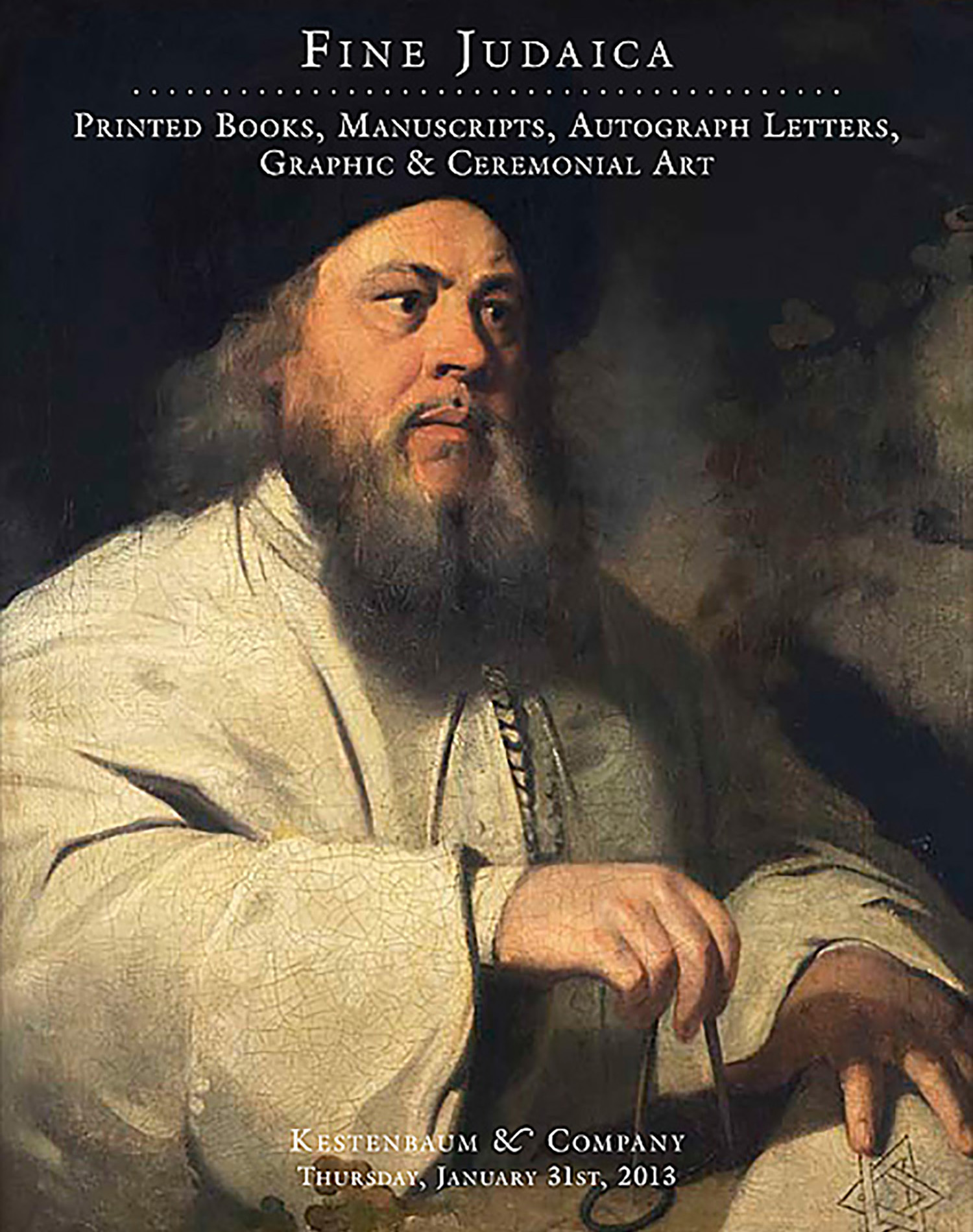MENDELSSOHN, MOSES.

AUCTION 57 |
Thursday, January 31st,
2013 at 1:00
Fine Judaica: Printed Books, Manuscripts Autograph Letters, Graphic & Ceremonial Art
Lot 163
MENDELSSOHN, MOSES.
Berlin: 1757
Est: $6,000 - $8,000
PRICE REALIZED $9,500
The first two pamphlets pertain to the participation of the Berlin Jewish community in the celebration in 1757 of two surprising victories by the Prussian Army during the Seven Years’ War (1756-1763). These two patriotic hymns were composed by Hartog Leo and translated into German by Moses Mendelssohn.
The third item is the famous sermon that celebrates the victory of the Prussian Army at Leuthen in 1757. Its authorship has generally been ascribed to Moses Mendelssohn although recent evidence demonstrates Chief Rabbi David Fränckel was the author, and Mendelssohn the translator.
The appearance of these three publications are of singular historical importance, representing for the first time, Jews identifying and expressing solidarity with the larger society and thus presaging the development of the Haskalah Movement and its efforts to foster Jewish integration.
The Jewish patriotism expressed in Fränckel’s sermon was seen as a natural response toward an emerging benevolent attitude toward the Jews of Germany. The sermon is also the earliest known specimen of Jewish preaching in the German language, a development that reflects the emergence of an acculturated class of German Jews who were comfortable conversing in High German.
Reprinted many times, Fränckel’s sermon was broadly by both Jews and Christians in both Europe and in the New World, as the question was pointedly faced as to whether Jews would be permitted to enter into the affairs of the 19th-century’s newly-emerging modern society.
See M. Saperstein, Changes in the Modern Sermon. In: The Encyclopedia of Judaism, 2004, Volume 5, Supplement 2, pp. 2265-83; G. Freudenthal, Rabbi David Franckel, Moses Mendelssohn, and the Beginning of the Berlin Haskalah: Reattributing a Patriotic Sermon (1757). In: European Journal of Jewish Studies, 2007: 1, pp. 1-33; and A. Altmann, Moses Mendelssohn: A Biographical Study (1973) p. 67ff.
